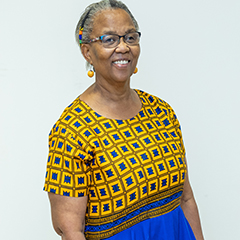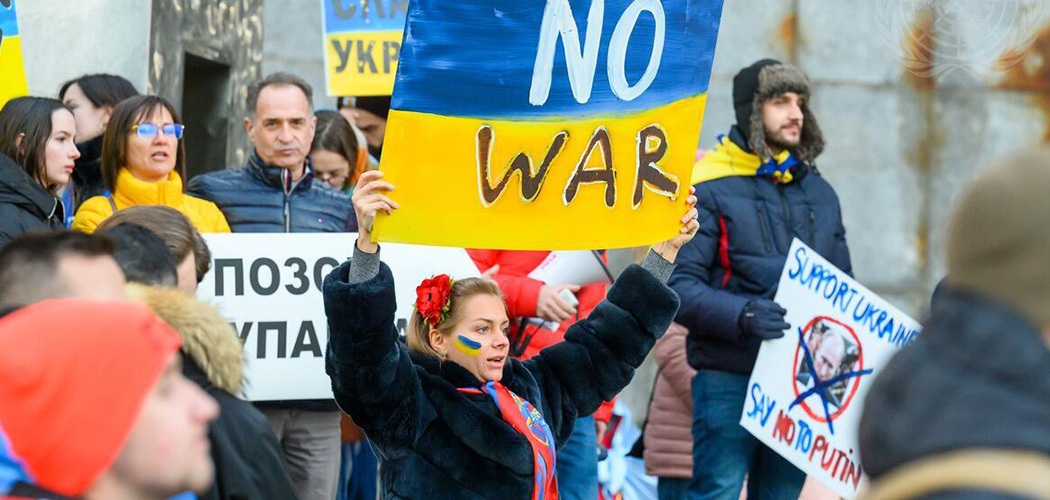As trusted frontline health professionals in every corner of the globe, nurses and midwives are uniquely positioned to lead collective international efforts for lasting peace.
On top of clinical care, nurses and midwives can play a significant role in helping bridge divides – including cultural, political and social – through their daily advocacy and action.
The UN International Day of Peace was established in 1981 by the United Nations General Assembly to promote peace among all nations and peoples. Each year on 21 September, the reflective day of global ceasefire and non-violence aims to strengthen those ideals and reduce conflicts around the world.
Amid escalating geopolitical tensions and ongoing conflicts, including the Russian invasion of Ukraine, the Gaza war, and tensions between India and Pakistan, just to name a few, there has never been a better time for health workers like nurses and midwives to step up as torchbearers for global peace.
The International Council of Nurses (ICN) is among many peak global bodies leading the collective movement for change.
In response to global conflicts, particularly the war in Ukraine, ICN launched its #NursesForPeace campaign, condemning the violence and showing solidarity and support for the nurses of Ukraine. It quickly expanded and now raises awareness and funds to support nurses working on the frontlines in crisis zones worldwide.
Speaking at a World Health Organization (WHO) Member State meeting in 2023, ICN Chief Executive Officer Howard Catton revealed that as the #NursesForPeace campaign grew, a strong link emerged between the work of all nurses and promoting peace. Giving one example, he said when supporting the health of migrants and refugees, issues of discrimination, marginalisation, sexual violence, can be laid bare. In these moments, nurses can build relationships through their trusted advice and care, which, as a byproduct, supports peace efforts.
“It became clear that nurses’ holistic approach and their concern for people’s wellbeing is also a bridge to peace: through their work, nurses address the root causes of ill health and the risk factors that lead to conflict.”
In January, three years on from the start of the conflict in Ukraine, ICN published an updated statement on healthcare in conflict, calling for peace in combat zones around the world.
“This anniversary is a stark reminder that war continues to devastate lives across the world, and that nurses bear a profound burden as they continue to serve their communities in the face of unimaginable hardships,” Mr Catton said.
“As peacemakers, nurses play a critical role in healing wounds – both physical and societal – helping to rebuild trust and stability in war-torn areas.”
Originally from the town of Soweto in Johannesburg, South Africa, New South Wales Nurses and Midwives’ Association (NSWNMA) member Pumla Coleman, a registered nurse currently working in mental health, understands the importance of peace all too well – conflict almost cost her life.
Pumla followed the footsteps of her mother to become a registered nurse and midwife in the 1970s.

Before fleeing to Australia in 1992, she lived through the Apartheid – a system of institutionalised racial segregation and discrimination enforced by the white minority government from 1948 to the early 1990s.
“It was a very brutal system. I lost a father and two brothers, and I’m not alone in that,” says Pumla.
“The government just killed as they pleased, and African people were confined to certain locations. We weren’t allowed to be in the town after six o’clock. My mother, who was a registered nurse, earned a third of a white nurse’s wage for the same job.”
Pumla was working as a community development worker for the University of South Africa, training nurses in primary healthcare to meet demand in post-Apartheid South Africa, when she became a government target. It coincided with Nelson Mandela being released from prison, which triggered black-on-black violence in the streets.
“I was one of those [the government] had on their hit list to kill,” she says matter-of-factly.
Deciding that enough was enough, Pumla moved to Australia with her husband and family.
An activist in South Africa for decades, Pumla has continued to support social justice causes in Australia, including advocacy for global unity and peace.
“I firmly believe nurses play a crucial role in promoting world peace by providing compassionate care, advocating for health equity, and being committed to the community’s wellbeing. That goes a long way for world peace,” she says.
In a fractured world, she considers it critical that health workers remain at the forefront of the collective movement for global peace.
“Nurses can help people to collaborate and understand their cultural differences. It’s about people feeling accepted and valued. It sounds like airy-fairy stuff but each person that you meet, you treat with compassion – there’s a ripple effect.”
Pumla’s message to global leaders is simple: nurses and midwives are best-placed to lead collective action towards peace and better health outcomes.
The United Nations International Day of Peace is held on 21 September








